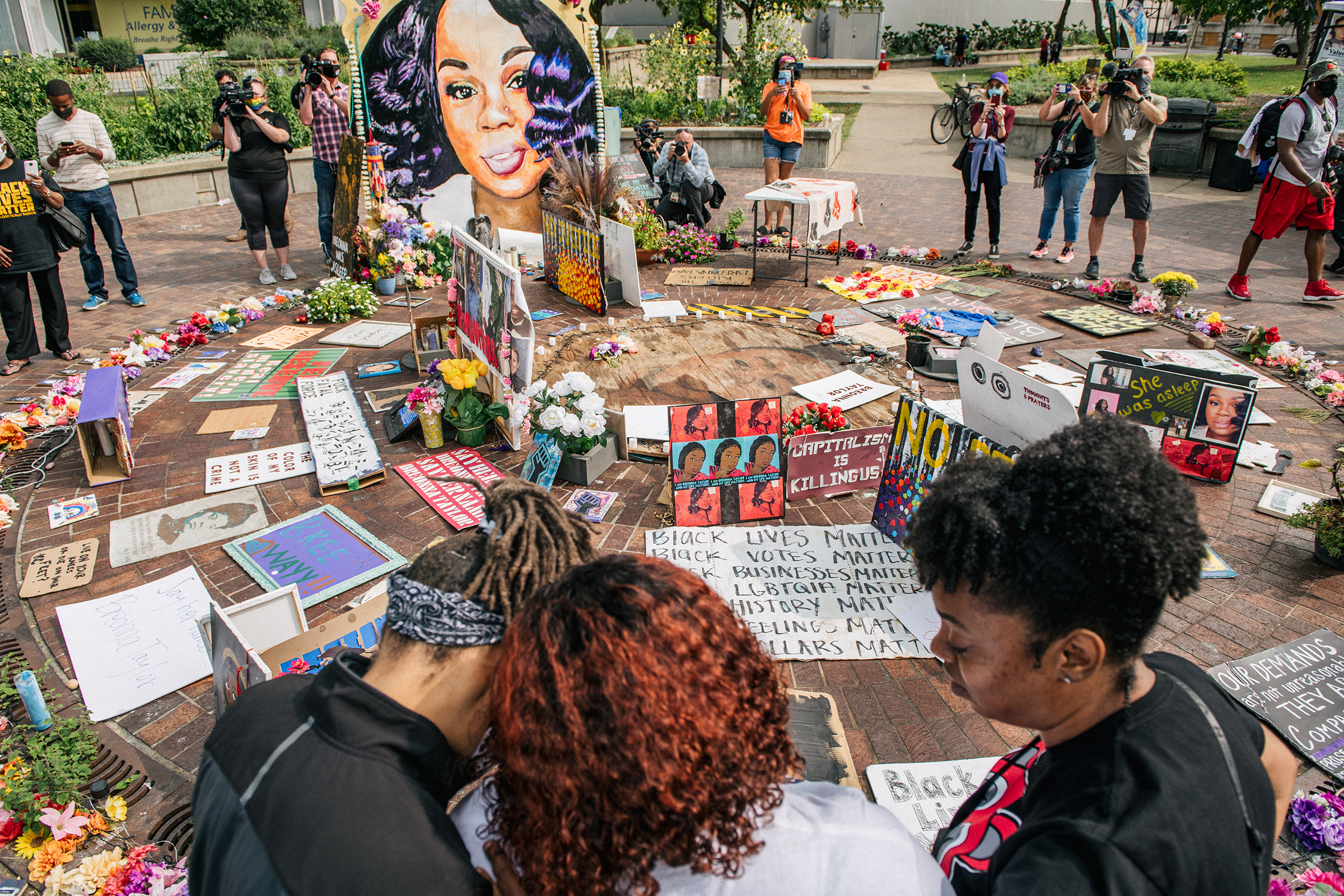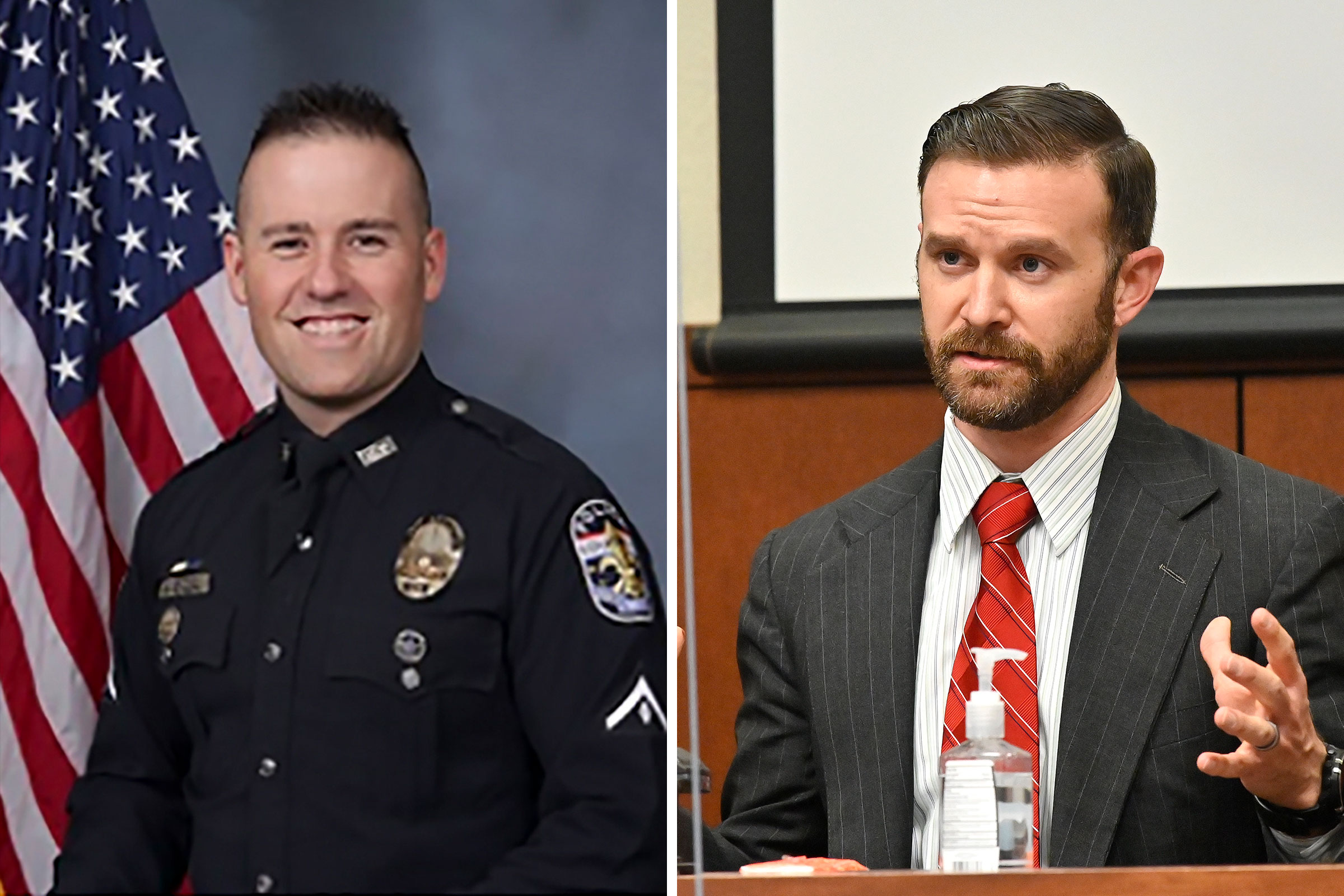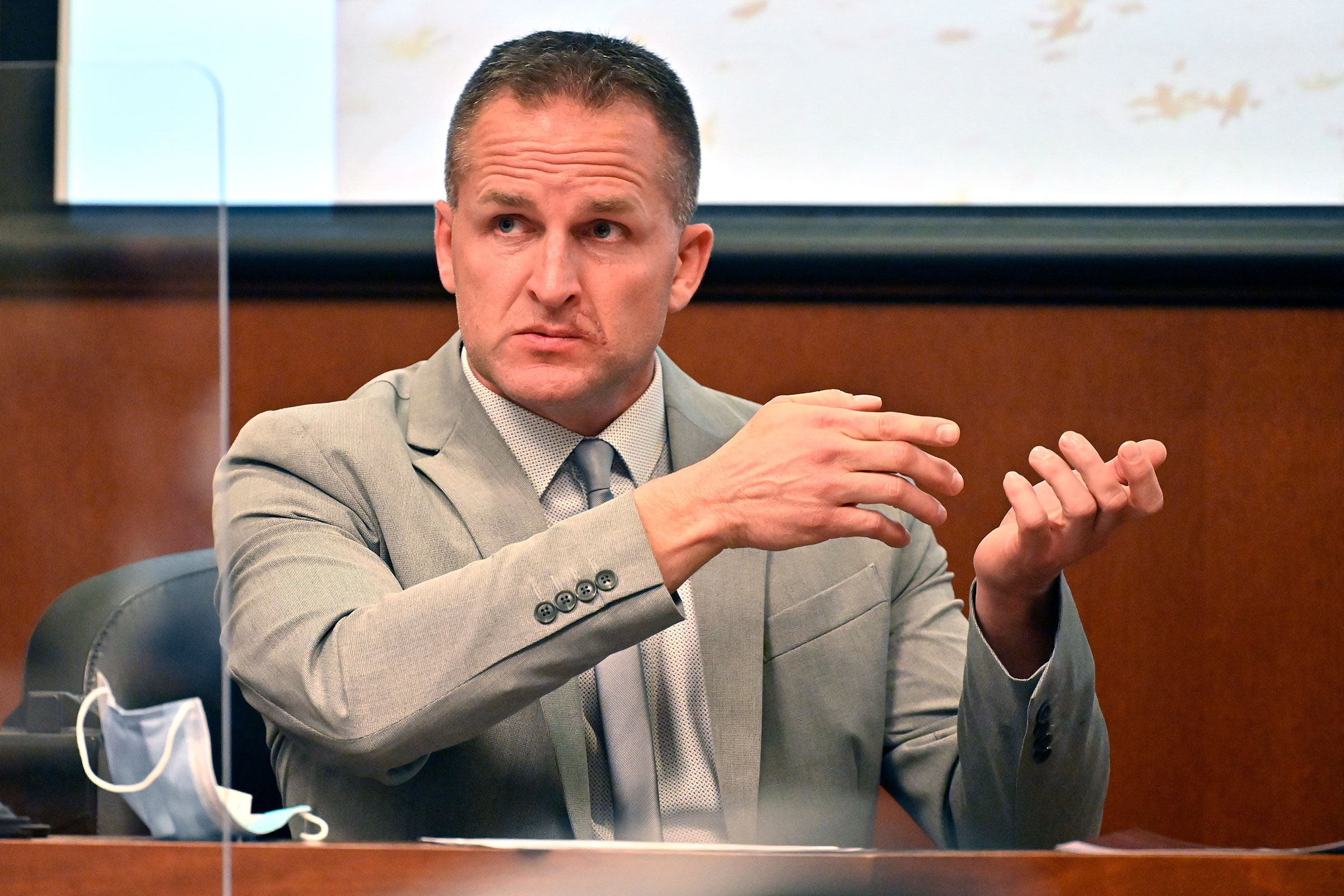
A guilty plea last week by a former Louisville Metro Police (LMPD) detective involved in the botched raid that led to Breonna Taylor’s death opens the door to her possibly cooperating with prosecutors, according to experts—something that is very rare in investigations of law enforcement officers.
The Justice Department charged Kelly Goodlett with helping to falsify the affidavit for the search warrant that authorized the “no-knock” entry into Taylor’s apartment in March 2020.
“Goodlett acknowledged that she helped another LMPD detective and their supervisor obtain a warrant to search Taylor’s home, despite knowing that the officers lacked probable cause to do so,” the federal prosecutors said in a statement on Aug. 23.
Goodlett and two other former LMPD officers—Kyle Meany and Joshua Jaynes—are accused of lying to get the search warrant for Taylor’s home. Meany and Jaynes are also charged with violating Taylor’s civil rights, which carries a maximum of up to life in prison if they are convicted.
Another officer, Brett Hankinson, is facing a separate federal charge of violating Taylor’s civil rights for allegedly using excessive force by firing 10 times into Taylor’s apartment.
Read more: For Breonna Taylor’s Supporters, Justice Finally Came—in the Form of Federal Civil Rights Charges
Local media has questioned whether Goodlett is going to testify against her two former colleagues which is highly unusual for cops to do—especially in high profile cases. Usually, officers tend to band together and back one another in the face of official or criminal investigations, says Steve Cohen, a former prosecutor with the U.S. Attorney’s Office for the Southern District of New York.
“For so many reasons and for so many years it has always been difficult to obtain the cooperation of a law enforcement officer,” Cohen says. “There is so much pressure on you as a law enforcement officer to stand by your brothers and sisters. The notion of violating that relationship, even to vindicate a broader principle becomes very difficult.”
Beyond that, though, the involvement of the Justice Department in a case like this is also not very common, says Joe Margulies, a criminal law professor at Cornell University and former defense attorney. “The mere fact that the feds got involved as a separate prosecution is unusual. Most cases of police shootings, even with multiple co-defendants, do not lead to federal charges,” Margulies says.
What is more routine, according to Margulies and other experts, is the alleged wrongdoing: making false statements on documents like affidavits and search warrants. Such misconduct “is staggeringly common. These are casual falsehoods that are calculatedly inserted into an affidavit in support of a warrant application. They are practiced at this,” Margulies says.
Here’s what to know about the status of the charges against the four officers involved in Breonna Taylor’s killing.
Kelly Goodlett
Of the four officers charged by federal prosecutors, Goodlett faces the least serious charge, by far—one count of felony conspiracy. The Department of Justice alleged that she and Jaynes worked together to write the false warrant affidavit and after the raid worked together to write a false police report to cover up the affidavit.
During a hearing last week, Goodlett pleaded guilty to the felony charge. She resigned from the police department on Aug. 5, a day after the federal charges were announced. Taylor’s mother, Tamika Palmer, was in the courtroom when Goodlett pleaded guilty.
“The warrant affidavit requested permission for officers to make a ‘no-knock’ entry at Taylor’s home because the alleged drug dealers that LMPD was investigating had a history of fleeing from the police and destroying evidence,” the DOJ statement said. “Goodlett admitted that all of the information in the warrant affidavit justifying a no-knock entry for Taylor’s home was false as it related to Taylor. Goodlett was not aware of any valid reason to seek a no-knock warrant at Taylor’s home.”
It’s not often that police officers in these types of cases plead guilty. “It could well be that the prosecutors recognized that she was somebody that was likely to cooperate and may have gotten an indication from her lawyer,” Cohen says. “I would imagine it’s highly likely that she does cooperate.”
Despite what evidence the DOJ has, a witness who can break down exactly what happened in this kind of case is always helpful for a jury. “You always want a narrator to tell the story,” Cohen says.
Goodlett is facing up to five years in prison, along with a possible $250,000 fine—considerably less than the other officers, if they are convicted. It’s likely that Goodlett had reached an agreement with the prosecution before the charges were filed, Margulies suggests. “That’s customary. If they got a member of the conspiracy that’s already come to an agreement to cooperate they’ll separate that person and their charges from the others,” he says.
Goodlett’s lawyer, Brandon Marshall, did not respond to a request for comment.
She is scheduled to be sentenced on Nov. 22.
Joshua Jaynes and Kyle Meany

Jaynes is facing three charges—conspiracy, falsifying records in a federal investigation and violating Taylor’s civil rights. Meany is facing two charges: violating Taylor’s civil rights and lying to federal investigators.
Jaynes was allegedly involved with Goodlett in creating the false affidavit. He and Goodlett told a judge that their real target—Taylor’s former boyfriend—was getting packages delivered to her house, even though there was no evidence of that, prosecutors said.
According to a federal indictment, Jaynes provided a false document to the FBI around May 2020 “which he knew would be used in a criminal investigation into the preparation and execution of the Springfield Drive warrant at Breonna Taylor’s home.” In this document, Jaynes provided misleading information about the connection between Taylor and alleged drug trafficking.
A couple of weeks later, Jaynes and Goodlett met in a garage to discuss the false affidavit that they made, prosecutors say. “[Joshua Jaynes] relayed to [Kelly Goodlett] that they needed to get on the same page because they could both go down for putting false information in the Springfield Drive warrant affidavit,” the indictment reads.
Meanwhile, along with the civil rights charges that he shares with Jaynes, Meany is alleged to have made false statements to the FBI during the course of their investigation into the incident. Prosecutors say he told federal authorities that the LMPD SWAT team requested the no-knock section of the warrant affidavit when that wasn’t true.
Attorneys representing Meany and Hayes did not respond to a request for comment.
The trial for Meany and Hayes is slated to begin in October.
Brett Hankinson

Hankison’s charges stem from his actions the night of the raid. While the officers were at the front door of Taylor’s house, he went to the side of Taylor’s house and fired 10 shots through a bedroom window and sliding door.
The window and door were covered with blinds and blackout curtains so it was impossible for him to see anything inside the house. During his state trial earlier this year, Hankison argued that he thought the officers who were conducting the raid were under gunfire. He was found not guilty in that trial.
Hankinson’s attorney did not immediately respond to a request for comment.
His trial is scheduled to begin in November.
More Must-Reads from TIME
- Where Trump 2.0 Will Differ From 1.0
- How Elon Musk Became a Kingmaker
- The Power—And Limits—of Peer Support
- The 100 Must-Read Books of 2024
- Column: If Optimism Feels Ridiculous Now, Try Hope
- The Future of Climate Action Is Trade Policy
- FX’s Say Nothing Is the Must-Watch Political Thriller of 2024
- Merle Bombardieri Is Helping People Make the Baby Decision
Write to Josiah Bates at [email protected]